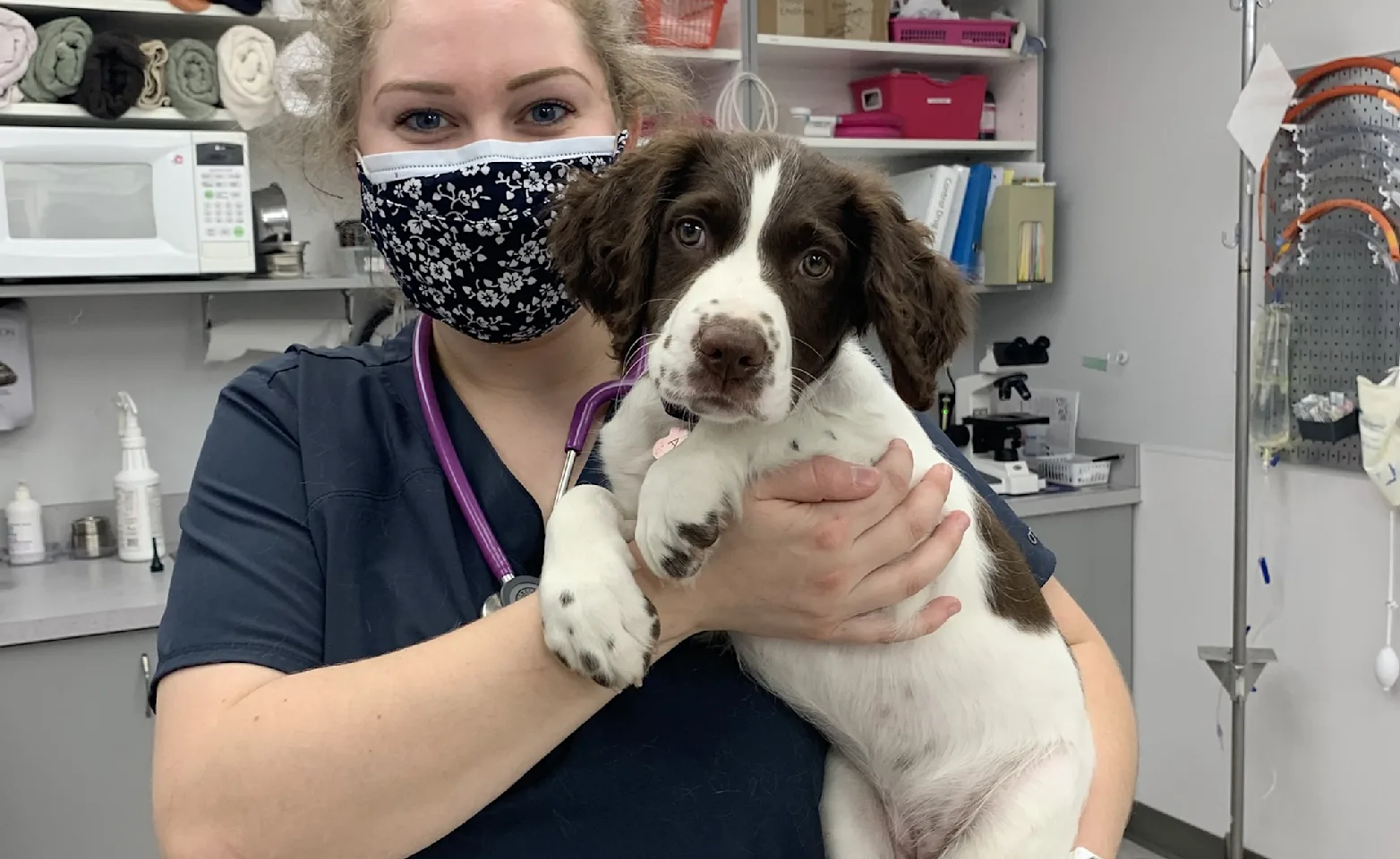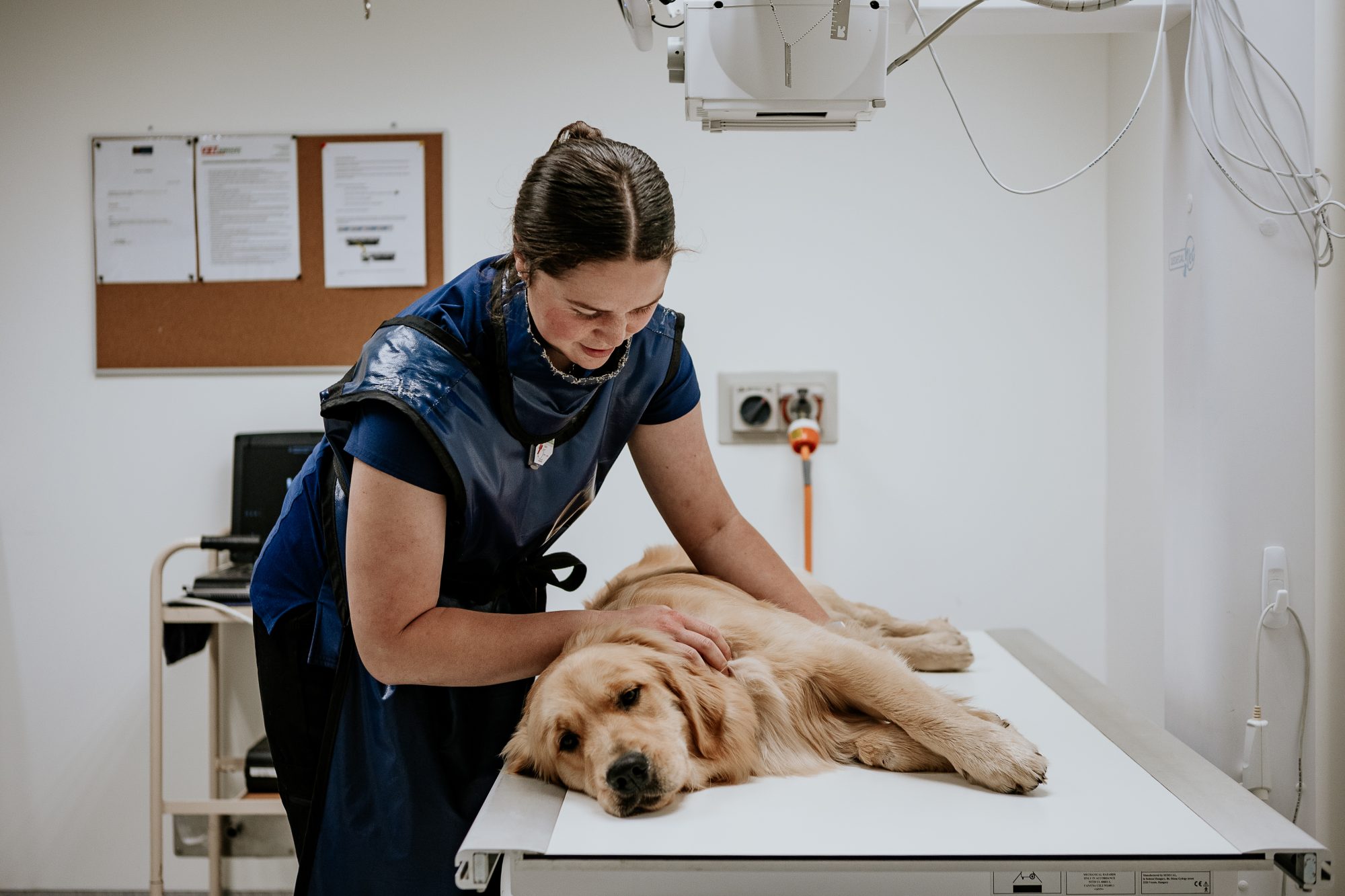Affordable Vet services tailored to your animal’s needs
Just How a Veterinary Specialty Hospital Can Cure Your Pet dog's Ailments With Advanced Techniques
Veterinary specialty hospitals play an important function in addressing complicated health and wellness issues in pets. They use sophisticated techniques and modern technologies that enhance medical diagnosis and treatment. With accessibility to specialized solutions, animal owners can locate tailored services for their pets' disorders. This increases crucial questions regarding the details methods employed and the advantages they offer. Recognizing these components can especially affect an animal's recovery trip.
Understanding the Duty of Veterinary Specialty Hospitals
Primary treatment veterinarians give necessary services for pet wellness, vet specialty hospitals play a vital role in attending to complex medical problems that need innovative diagnostics and therapy. These facilities are furnished with specialized technology and knowledgeable specialists who focus on particular locations of vet medication, such as oncology, neurology, and cardiology.
Veterinary specialty hospitals promote a joint method, commonly functioning in combination with a pet dog's main vet to produce thorough care plans. They provide access to sophisticated imaging methods, such as MRI and CT scans, which are not normally available in basic centers - Learn More. Additionally, these hospitals provide critical care unit for seriously unwell pet dogs, guaranteeing round-the-clock tracking and support
Specialized Solutions Offered by Veterinary Specialists
Veterinary experts supply vital solutions that boost family pet medical care, especially through sophisticated diagnostic imaging methods. These devices enable precise evaluations of complex clinical conditions, resulting in a lot more efficient targeted therapy strategies. By integrating these specialized services, vet hospitals can substantially enhance patient outcomes and total well-being.
Advanced Diagnostic Imaging
Advanced analysis imaging plays a crucial function in contemporary veterinary medication, allowing experts to obtain comprehensive understandings into an animal's wellness. Methods such as X-rays, ultrasound, computed tomography (CT), and magnetic resonance imaging (MRI) enable veterinarians to envision inner structures without intrusive treatments. These innovative imaging modalities help in identifying a variety of conditions, from growths and cracks to organ irregularities. By offering clear photos, they improve the accuracy of assessments, which is important for reliable therapy planning. Furthermore, specialized veterinary radiologists interpret these images, making certain that subtle concerns are not overlooked. Inevitably, advanced diagnostic imaging contributes in supplying comprehensive care, as it enables very early detection and treatment in a pet's clinical problems.
Targeted Treatment Strategies
Targeted therapy plans are essential for dealing with the certain wellness needs of family pets, guaranteeing that each animal obtains individualized care tailored to its one-of-a-kind condition. Veterinary experts develop these strategies based on detailed evaluations, including innovative diagnostic imaging and research laboratory tests. By focusing on the individual pet's diagnosis, lifestyle, age, and breed, specialists can prescribe reliable treatments, ranging from medication modifications to surgical interventions. These plans also incorporate follow-up care and monitoring to track the pet's progression and make essential changes. This technique advertises excellent results and enhances the total quality of life for animals dealing with intricate health difficulties. Inevitably, targeted therapy plans represent a dedication to supplying the greatest criterion of veterinary treatment.
Advanced Diagnostic Techniques for Accurate Diagnoses
As pets encounter progressively complex wellness difficulties, the integration of sophisticated diagnostic strategies has become necessary for achieving exact medical diagnoses. Veterinary specialty hospitals utilize modern imaging innovations, such as MRI and CT checks, to imagine internal frameworks with remarkable clarity. These techniques allow vets to identify problems that might not show up with standard techniques.
In enhancement to imaging, progressed lab examinations, including genetic and biomarker analyses, offer vital understandings right into hidden problems. These examinations allow veterinarians to discover illness at earlier phases, facilitating prompt intervention (Learn More). Moreover, using endoscopy allows for straight visualization of inner organs, aiding in the diagnosis of gastrointestinal and respiratory problems
Cutting-edge Treatment Options for Facility Problems
Ingenious treatment alternatives for complicated conditions in pets have actually emerged as a crucial emphasis within veterinary specialty hospitals. Making use of sophisticated analysis devices, these facilities enhance their capacity to recognize concerns precisely and tailor appropriate treatments. In addition, the execution of minimally invasive procedures and advanced recovery strategies uses family pets a much better opportunity at recuperation with decreased pain.
Innovative Diagnostic Devices
While the landscape of vet medicine proceeds to progress, sophisticated analysis tools have emerged as necessary assets for resolving complex problems in animals. These advanced technologies, consisting of digital imaging, ultrasound, and molecular diagnostics, permit vets to obtain precise information about a family pet's wellness condition swiftly. For instance, high-resolution imaging methods can disclose detailed information of inner structures, making it possible for accurate assessments of conditions or injuries. Furthermore, hereditary screening gives understandings into genetic conditions, assisting customized treatment strategies. By leveraging these innovative diagnostic devices, veterinary specialty hospitals can boost their ability to recognize conditions that might have previously gone undiscovered. Eventually, these improvements contribute to boosted outcomes and enhance the overall quality of care provided to cherished pet dogs.
Minimally Invasive Treatments
Improvements in vet medicine have led the way for minimally invasive procedures, which provide brand-new therapy choices for complicated conditions in pet dogs. These innovative methods, such as laparoscopy and endoscopy, permit veterinarians to perform surgical procedures with smaller sized lacerations, reducing trauma and recovery time. By using specialized electronic cameras and tools, vets can identify and deal with problems like growths, intestinal disorders, and joint troubles with accuracy. This method reduces discomfort and brings about quicker recovery, making it possible for animals to return to their typical tasks sooner. Veterinary. Furthermore, minimally intrusive procedures commonly cause less scarring and a lower risk of issues. As vet specialty hospitals take on these sophisticated techniques, pet owners can feel much more positive in their animals' care and general wellness
Advanced Rehab Techniques
As veterinary medication progresses, progressed recovery techniques are ending up being necessary for taking care of complicated problems in animals. These methods include a variety of ingenious therapy choices, including hydrotherapy, laser therapy, and physical therapy. Hydrotherapy makes use of water resistance to improve wheelchair and strengthen muscular tissues, helpful for pet dogs recuperating from surgical procedure or injury. Laser therapy advertises recovery by minimizing swelling and discomfort, promoting quicker recuperation times. Physical treatment employs targeted exercises to enhance strength and adaptability, tailored per pet's specific requirements. Additionally, techniques like acupuncture and chiropractic care adjustments can better sustain rehab by easing discomfort and improving overall health. Veterinary specialty hospitals are increasingly integrating these strategies, making certain animals receive complete treatment that addresses both emotional and physical recuperation, inevitably boosting their lifestyle.
The Significance of a Multidisciplinary Method
A multidisciplinary technique in vet treatment considerably boosts the treatment outcomes for pets, as it integrates expertise from different specialties to deal with intricate wellness concerns. This joint technique entails vets, experts, service technicians, and support staff collaborating to create comprehensive therapy plans tailored to every animal's unique needs (Vet services). By combining expertise from areas such as surgical procedure, interior medicine, oncology, and rehab, veterinarians can identify hidden problems that may otherwise go undetected
This technique promotes communication among group members, ensuring that all facets of a family pet's health and wellness are taken into consideration. For circumstances, a family pet recuperating from surgical procedure might gain from input from both a cosmetic surgeon and a rehabilitation expert, resulting in a more efficient recuperation procedure. Inevitably, a multidisciplinary method not only boosts the top quality of care but also boosts the general wellness of pets, offering them with the most effective chance for an effective recuperation and lasting wellness.
Cutting-Edge Modern Technology in Veterinary Medication

With the fast advancement of technology, vet medication has accepted ingenious devices and strategies that substantially boost diagnostics and therapy alternatives for pet dogs. Advanced imaging technologies, such as MRI and CT scans, enable veterinarians to imagine interior frameworks with unmatched clearness, assisting in precise diagnoses. In enhancement, minimally invasive medical methods, sustained by robotic-assisted systems, enhance precision and reduce recuperation times for family pets.
Telemedicine has actually also become a crucial source, enabling veterinarians to seek advice from with pet dog owners remotely, thus helping with prompt interventions. Additionally, the integration of expert system in evaluating clinical information adds to a lot more reliable therapy plans tailored to individual needs. Cutting-edge research laboratory equipment enables for quick blood evaluation and microorganism detection, promoting prompt medical reactions. As vet specialty hospitals remain to integrate these innovations, they not only boost the top quality of treatment however also considerably improve the general health of pets.
Success Stories: Real-Life Instances of Family Pet Recovery
Many heartfelt success tales highlight the amazing recoveries of pet dogs dealt with at veterinary specialty hospitals. link One such instance entailed Bella, a Golden Retriever detected with a severe orthopedic concern. After sophisticated surgical treatment and rehabilitation, Bella was not just able to stroll once more yet additionally to run joyfully in the park, much to her proprietors' delight.
One more inspiring tale features Max, a pet cat with persistent kidney condition. Through specialized dietary monitoring and innovative treatments, Max's condition stabilized, allowing him to regain his power and cravings. His proprietors were thrilled to see him go back to his lively self.

Regularly Asked Questions
What Should I Anticipate Throughout My Pet's Specialty Consultation?
During a specialized appointment, family pet owners can anticipate a thorough evaluation, detailed case history conversations, analysis tests, and customized treatment alternatives. The vet specialist will offer understandings and suggestions for the pet's certain health requirements.
How Can I Locate a Veterinary Specialty Hospital Near Me?
To find a vet specialty hospital close by, one can make use of on the internet search engines, check neighborhood directory sites, or seek referrals from main vets. In addition, animal proprietor online forums can offer valuable insights and experiences concerning nearby centers.
Are Specialty Provider Covered by Family Pet Insurance?
Specialty services may be covered by pet insurance coverage, however coverage varies by policy. Proprietors should meticulously evaluate their insurance policy strategy details and consult their supplier to recognize the degree of protection for specialty vet solutions.

Just How Long Will My Animal's Treatment Take?
The duration of an animal's therapy can vary substantially, frequently ranging from a couple of days to numerous weeks - Veterinary. Factors influencing this timeline include the particular problem, therapy kind, and the pet's overall health and feedback
What Are the Prices Connected With Specialty Veterinary Treatment?
The prices related to specialty vet care can differ commonly, usually ranging from hundreds to hundreds of dollars. Variables influencing these costs include the complexity of the problem, called for therapies, and analysis treatments required for reliable care.
Veterinary specialty hospitals play a necessary duty in addressing complex wellness problems in family pets. Main care veterinarians give vital services for pet health, vet specialty hospitals play a critical duty in dealing with complicated medical problems that call for sophisticated diagnostics and treatment. Veterinary specialty hospitals promote a joint technique, typically working in conjunction with an animal's main veterinarian to create thorough treatment plans. Cutting-edge therapy choices for complex problems in family pets have emerged as a vital focus within vet specialty hospitals. A multidisciplinary technique in veterinary treatment greatly enhances the treatment results for pets, as it incorporates experience from numerous specialties to address complex wellness problems.